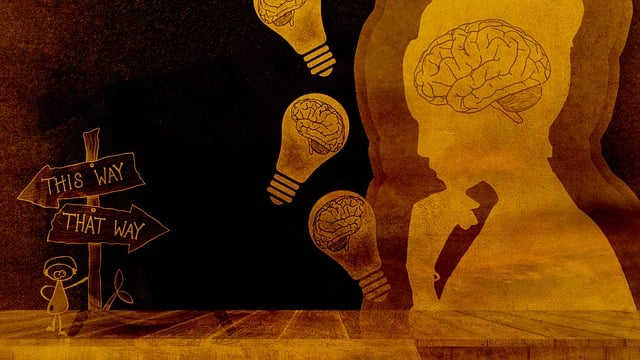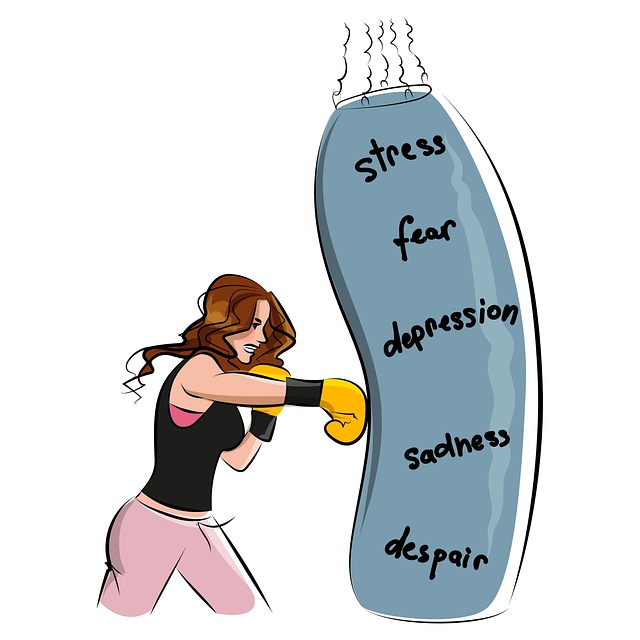Aurora Crisis Counseling Therapy (ACCT) provides a dynamic and safe space for individuals to manage emotions during challenging times. Through structured sessions, cognitive-behavioral therapy (CBT), mindfulness, emotional intelligence training, and tracking triggers via journaling, ACCT empowers clients with effective coping strategies, reduces anxiety, and improves mood regulation. This holistic approach fosters resilience, enhances self-esteem, and promotes overall mental wellness, ensuring stability even during crises.
Mood regulation is a vital skill for navigating life’s challenges. This article explores effective strategies to manage emotions, emphasizing the power of Aurora Crisis Counseling Therapy in understanding and stabilizing mood patterns. We’ll guide you through identifying triggers, mastering calming techniques, and building resilience. By incorporating these practical approaches into daily routines, individuals can enhance emotional well-being and foster a more balanced mindset. Discover how Aurora Crisis Counseling Therapy provides valuable insights for long-term mood regulation.
- Understanding Mood Regulation: The Role of Aurora Crisis Counseling Therapy
- Identifying Triggers and Patterns: A Key Step in Managing Emotions
- Techniques to Calm and Stabilize: Practical Strategies for Daily Life
- Building Resilience: Long-term Mood Regulation Through Therapeutic Practices
Understanding Mood Regulation: The Role of Aurora Crisis Counseling Therapy

Understanding Mood Regulation involves recognizing that emotional well-being is a dynamic process. Aurora Crisis Counseling Therapy (ACCT) offers a unique approach to managing moods and emotions, especially during challenging times. This therapy focuses on providing individuals with effective coping strategies to navigate through intense feelings and stressful situations, ultimately enhancing their ability to maintain emotional balance.
By incorporating techniques tailored to each person’s needs, ACCT promotes Anxiety Relief and fosters Emotional Intelligence. It aims to reduce the Mental Illness Stigma often associated with seeking help, creating a safe space for individuals to explore and express their emotions freely. Through structured sessions, this therapy equips clients with tools to identify triggers, develop resilience, and improve overall mood regulation skills, ensuring better mental health outcomes.
Identifying Triggers and Patterns: A Key Step in Managing Emotions

Identifying Triggers and Patterns is a fundamental step in effective mood regulation. By paying close attention to your emotions, you can start to recognize what sets them off and how they tend to manifest. This process involves mindfulness and self-awareness—two crucial tools offered by Aurora Crisis Counseling Therapy. Keeping a journal to track your feelings, thoughts, and situations can help uncover recurring patterns related to stress, anxiety, or mood swings.
Understanding these triggers is the first step towards building resilience. Once identified, you can develop strategies to manage them proactively. For instance, if certain environments or interactions consistently lead to feelings of unease or low self-esteem, taking proactive steps like avoiding triggering situations (when possible) or implementing calming techniques (such as deep breathing exercises) can help mitigate the impact. This process not only aids in Anxiety Relief but also contributes to Self-Esteem Improvement over time.
Techniques to Calm and Stabilize: Practical Strategies for Daily Life

In moments of heightened emotion or during a mental health crisis, practical strategies can help individuals calm and stabilize their minds. Techniques such as deep breathing exercises, mindfulness meditation, and progressive muscle relaxation are effective tools that promote mental clarity and emotional balance. These methods encourage folks to focus on the present moment, quieting racing thoughts and reducing anxiety.
Aurora Crisis Counseling Therapy emphasizes these practical strategies as part of its approach to addressing mental illness. By integrating Mind Over Matter principles and cultivating cultural sensitivity in mental healthcare practice, Aurora aims to empower individuals to manage their emotional well-being. Through these techniques, people can navigate life’s challenges with enhanced resilience, fostering a sense of stability and overall mental wellness despite the stigma reduction efforts that continue to promote understanding and acceptance of various mental health conditions.
Building Resilience: Long-term Mood Regulation Through Therapeutic Practices

Building resilience is a key component of long-term mood regulation. Aurora Crisis Counseling Therapy offers therapeutic practices designed to help individuals develop coping mechanisms that stand the test of time. By integrating various strategies, such as cognitive-behavioral therapy (CBT), mindfulness techniques, and emotional intelligence training, clients gain a deeper understanding of their emotions and learn how to navigate life’s challenges more effectively.
Through consistent practice, these therapeutic methods not only enhance self-esteem improvement but also serve as powerful stress reduction methods. By fostering emotional intelligence, individuals become better equipped to recognize and manage their feelings, leading to improved mental well-being. This holistic approach ensures that clients are empowered to maintain stability even during tumultuous times.
In conclusion, mood regulation is a multifaceted process that can significantly enhance overall well-being. By understanding the role of therapies like Aurora Crisis Counseling and identifying personal triggers, individuals can begin to manage their emotions effectively. Practical techniques for calming and stabilizing moods, combined with building resilience through therapeutic practices, offer long-term strategies for maintaining emotional balance. These approaches empower folks to navigate life’s challenges with greater equanimity and resilience.













